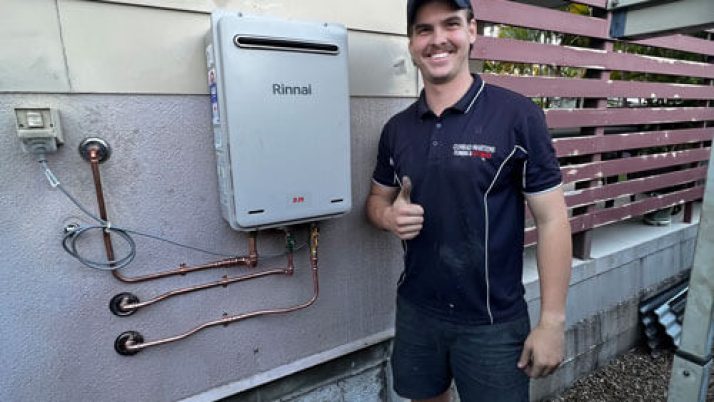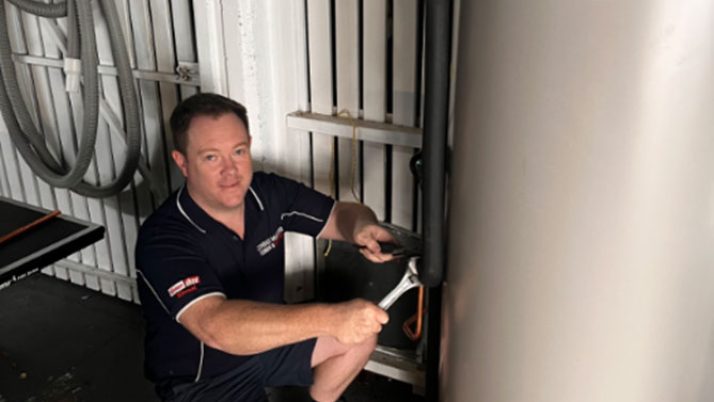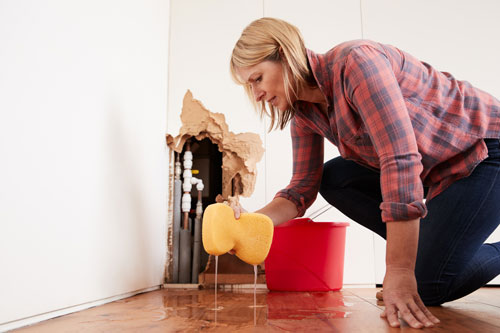
Stop the Flood Before It Starts:
How to Prevent Water Pipe Bursts!
Burst pipes can be a nightmare for homeowners. They can cause significant damage to your property, lead to high water bills, and create an overall inconvenience. In this blog post, we will discuss the causes of burst pipes, the impact they can have on your home, and what you can do when it does happen. We will also provide tips on how to prevent water pipe bursts from occurring in the first place.
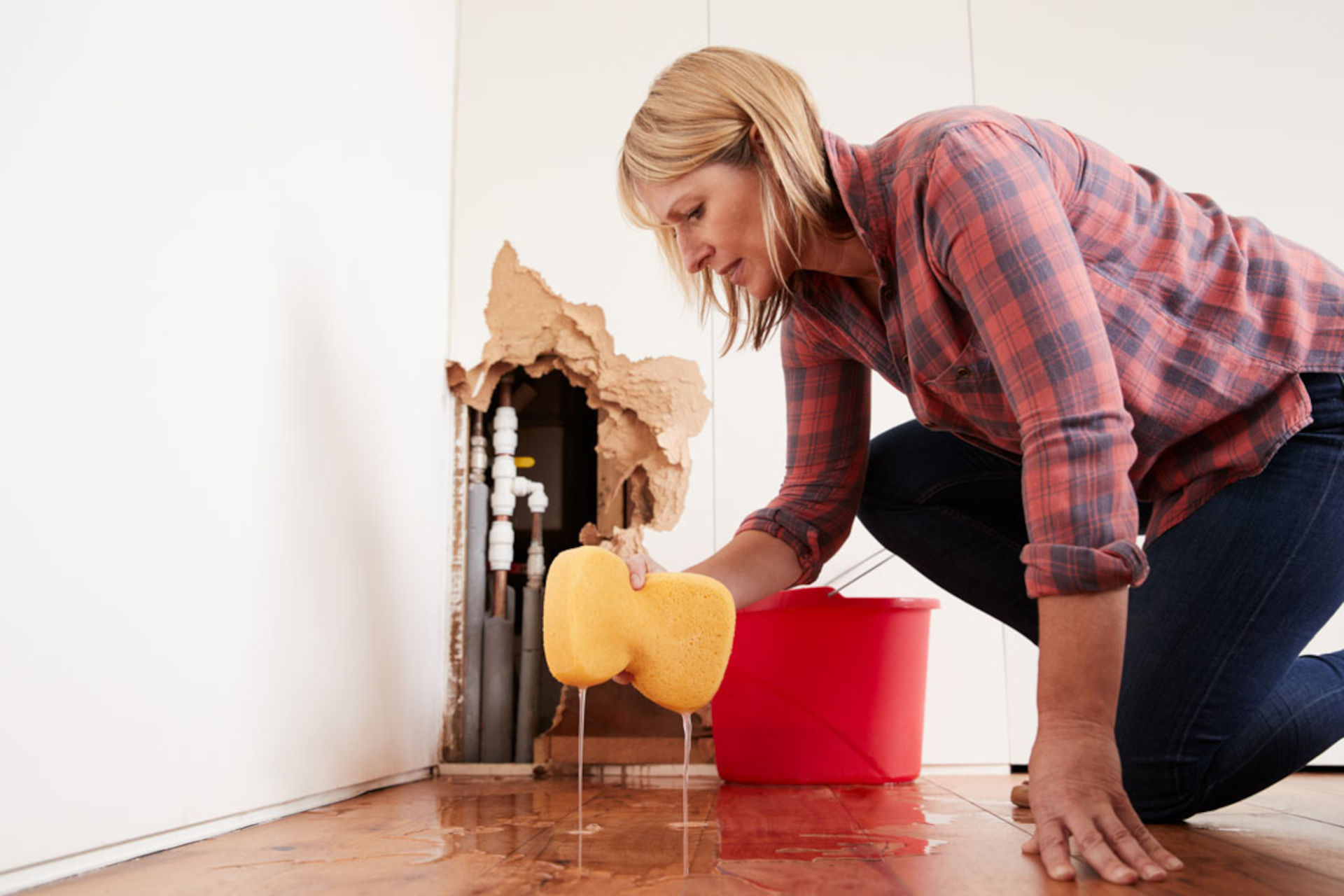
Understanding Burst Pipes
A burst pipe refers to a water pipe that has cracked, ruptured, or completely broken open, causing water to leak or spray out uncontrollably. Burst pipes can occur anywhere throughout the plumbing system in your home and require immediate attention to minimise damage.
The rupture or breakage of a pipe can be caused by several factors including, excessive water pressure, aging or corroded pipes, or physical damage from external forces such as tree roots. When a pipe bursts, water escapes rapidly and potentially causes significant damage to the surrounding area with all types of piping materials vulnerable to damage.
Recognising the Signs
Recognising the signs of a burst pipe early on is crucial to minimize the damage and address the issue promptly. Here are some common signs that may indicate a burst pipe:
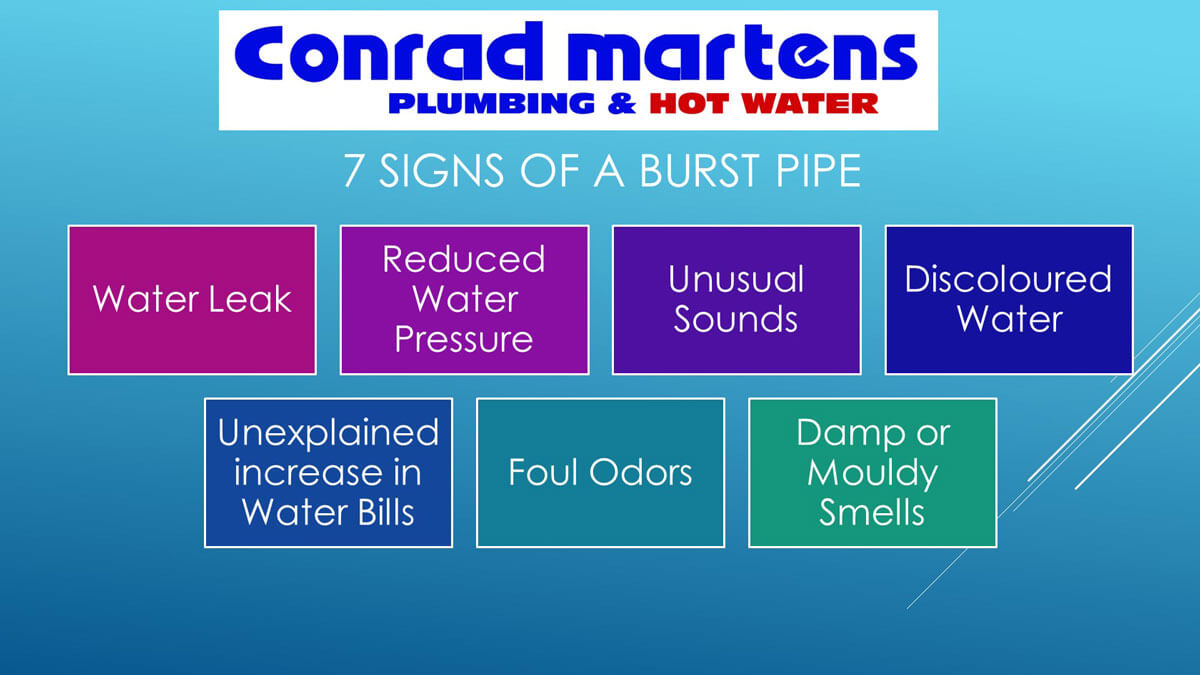
- Water Leakage: Look for wet spots, puddles, or water stains on walls, ceilings, or floors, particularly in areas near plumbing fixtures or where pipes are located.
- Reduced Water Pressure: Check different taps and fixtures to see if the water flow is weaker than usual.
- Unusual Sounds: Listen for hissing or rushing water noises coming from behind walls, in ceilings, or under the floor.
- Discolored Water: Discolouration occurs when soil or rust enters the water supply due to a damaged pipe.
- Unexplained Increase in Water Bills: Increased consumption due to continuous leakage can lead to higher water bills.
- Foul Odors: Burst pipes that carry wastewater can release unpleasant smells.
- Damp or Mouldy Smells: Mold and mildew thrive in moist environments, so their presence suggests a source of excess moisture.
Need Did you know? We attend to 99% of jobs the same day!
Please call, and we will be able to assist you today.
Our team will give you real, honest advice and a great price. All our work is 100% guaranteed.
Preventative Measures
The hot and humid conditions in Brisbane have a specific impact on plumbing installations but there are some preventative steps a homeowner can take. Whether it’s summer or winter these tips are a great way to assist you in getting on the front foot.
- Insulate Exposed Pipes: Insulation helps protect pipes from changing weather conditions, reducing the risk of them bursting.
- Seal Cracks and Gaps: Inspect the areas around pipes for any cracks or gaps that could expose them to weather.
- Monitor Water Pressure: Excessive water pressure can strain and weaken pipes over time, increasing the likelihood of bursts. Install a pressure regulator on the main water supply line to control and maintain the water pressure within a safe range (typically around 210-500 KPA).
- Inspect and Maintain Plumbing System: Regularly inspect your plumbing system looking for any of the above signs. Address any minor issues promptly to prevent them from escalating into burst pipes.
- Properly Landscape and Maintain Trees: Tree roots seeking moisture can invade and damage underground pipes. Be mindful of the location of trees and shrubs near your property’s plumbing lines. If necessary, consult with professionals to remove or relocate problematic vegetation.
- Whilst not usually a major issue in Brisbane, in some cases, hard water can also become problematic. Hard water is water that contains high levels of minerals (usually, calcium and magnesium) which can be seen deposited on shower roses and at the end of taps. Over time these minerals also build up inside pipes and can have a corrosive effect and slow flow rates. If you’re in an area where hard water is a problem a water softener could be the solution for you. A softener uses salt to remove minerals from your water.
Queensland Urban Utilities has a detailed page on water hardness on their website at https://urbanutilities.com.au/residential/help-and-advice/drinking-water-quality/water-quality-water-hardness. - If drilling or screwing into a wall you suspect may contain pipework, isolate your water supply before any work is commenced. Once you are done, water can be slowly turned back on whilst ensuring you check for any signs a pipe may have been hit.
We recommend that you familiarise yourself with the location of both the primary water isolation tap for your property and the isolation tap for your hot water system. This knowledge will allow you to quickly turn off the water and minimise damage should an emergency occur.
Our Practical Tip – 2-Step Overnight water meter test
If you suspect that you have a concealed water leak, we recommend running an overnight water meter test. To complete this test complete the following:
- Locate your water meter and take a photo of the meter reading once you have finished using all water services for the day. Ensure that you are able to clearly read the numbers on the water meter.
- Take another photo first thing in the morning before any taps or toilets are used.
These two readings should be the same. If they’re not, then there is a good chance you have a water leak.
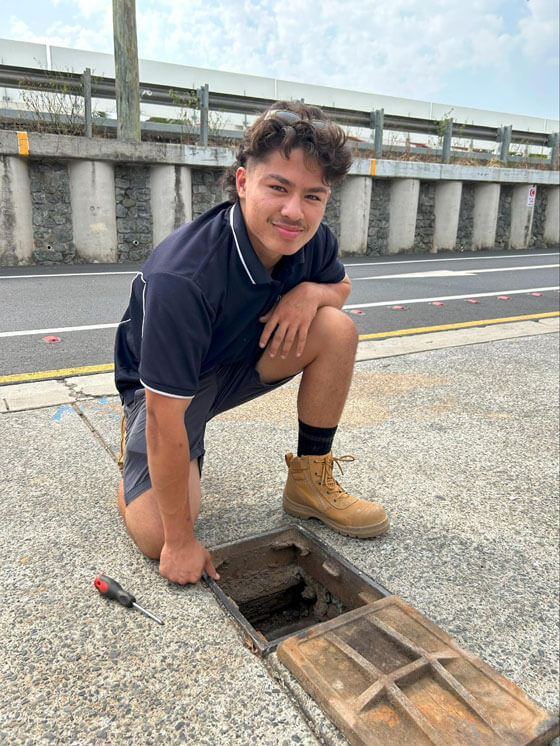
Locate the water meter
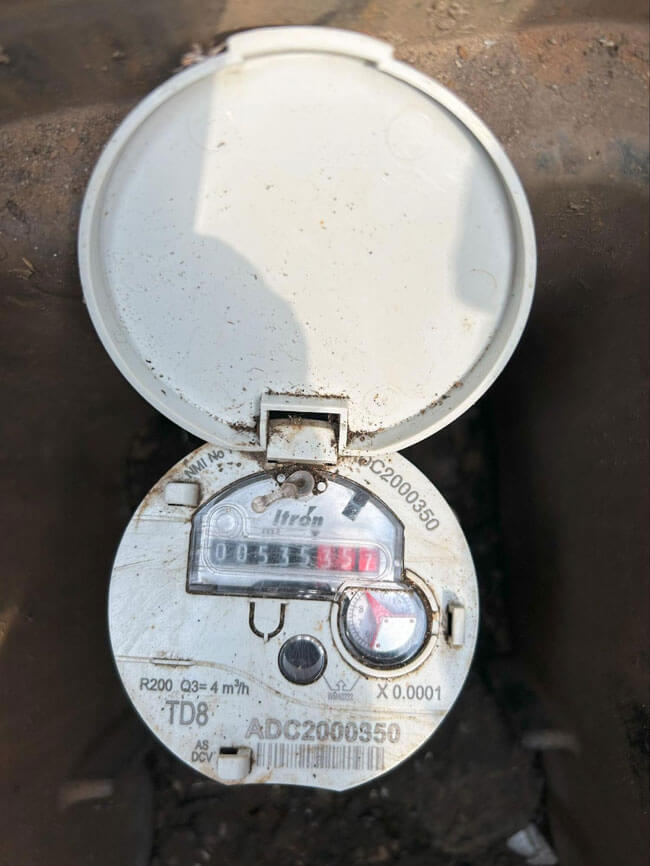
Check the reading and compare in the morning
If you’ve identified any of these plumbing concerns or, your overnight water meter read confirms a leak, contact a qualified plumber. They’ll be able to conduct further tests and inspections with specialised leak detection and location equipment. They can then advise on the right solution and ways on how to prevent water pipe bursts in the future.
The Consequences of Burst Pipes
A burst pipe or water leak can create a variety of issues.
- Structural damage to your home and property. Carpets, cabinetry, and ceilings are all areas we frequently find to be damaged because of water leaks.
- Health risks. Small water leaks that sometimes go unnoticed can produce mold within walls or beneath carpets.
- Financial implications. The clean-up and repairs after a burst pipe can sometimes run into thousands of dollars and while insurance may cover some costs, you may still be left with hefty bills and inconvenience.
Factors Influencing Burst Pipe Repair Costs
The cost of repairing a burst pipe will heavily depend on a number of factors.
- Location and accessibility of the damage.
- Severity and extent of the damage.
- Type of pipe material.
- Time factors: day, night, or weekend repairs.
Addressing Burst Pipes: DIY vs. Professional Repairs
If you notice any of these signs or suspect a burst pipe, it’s essential to take immediate action and shut off the main water supply to your home. Acting swiftly can help minimize water damage and prevent further complications.
The allure of do-it-yourself (DIY) projects is undeniable, however, when it comes to plumbing repairs, including burst pipes, the risks of DIY interventions cannot be overlooked. Burst pipes pose a significant threat to homes, with the potential for extensive water damage, structural issues, and even health hazards. Attempting complex repairs without the necessary expertise and tools can lead to disastrous outcomes. Prevention is always better than a cure, so if you’re concerned that you may be on the path to a burst pipe or you’ve found a water leak, then it’s time to call your local qualified plumber. It may just save you a costly and time-consuming insurance claim or a high-water bill. For more information on the risks of DIY plumbing work, see our blog post – Why DIY isn’t recommended
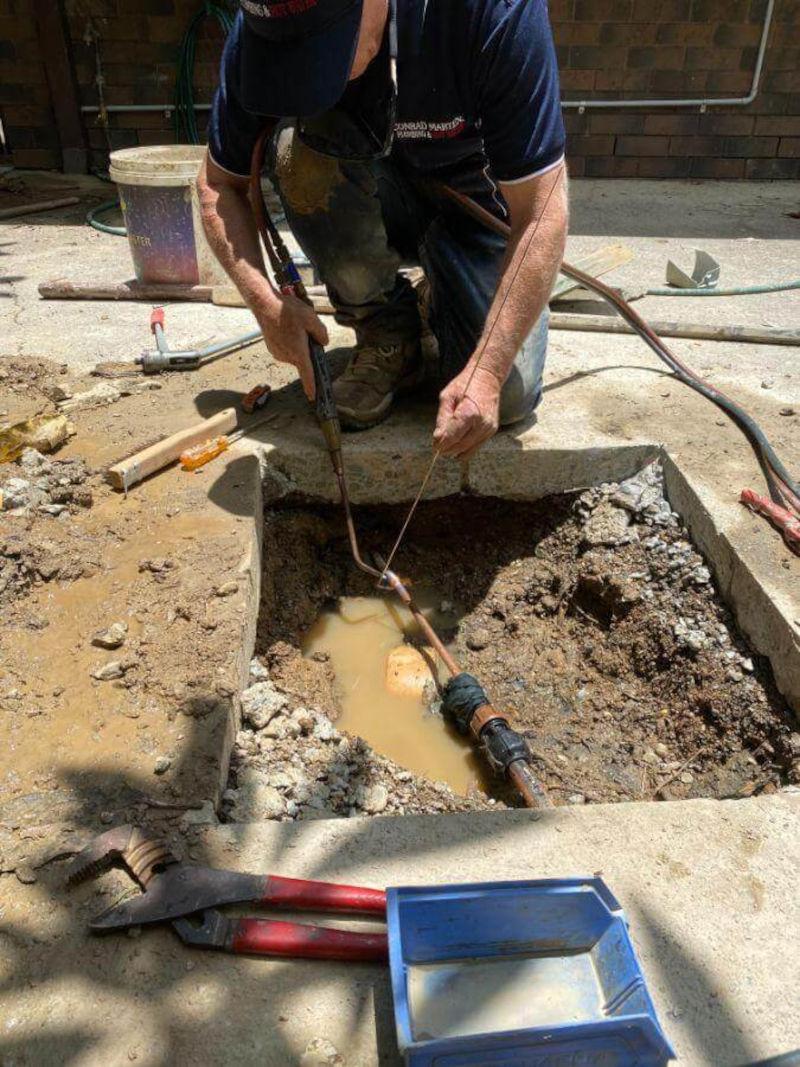
Insurance Considerations for Burst Pipe Repairs
Many home and contents insurance policies cover loss or damage caused by water leaks. Still, checking your policy documents and Product Disclosure Statement (PDS) to understand limits, exclusions, payable excess, and your current sum insured levels is essential. We recommend contacting your home and contents insurance provider with any questions. Even if your insurance policy covers the damage or loss, you will still be left to cover the cost of the insurance premium. Water leaks also have a huge emotional cost and inconvenience, which you should be able to avoid with simple planning and checks.
In general, we have found that insurance companies break down the costs for a claim of this nature as follows.
- Exploratory Costs. These are the costs of the tradesperson and their equipment to identify and locate the leak. Generally, these costs are covered by insurance.
- Rectification Costs. The costs associated with fixing the problem which originally caused the leak. – Generally, these costs are not covered by insurance providers.
- Consequential Damage – The cost of repairing damage caused by the leaking water from the burst pipe – Generally, these costs would be covered by insurance.
Conclusion
Burst pipes are certainly not to be ignored or taken lightly. With the substantial financial costs, property damage, and inconvenience, being vigilant and looking for the potential signs of a burst pipe is the best way to stay out of a nightmare situation. For more information or to book one of our specialised plumbers, Contact Conrad Martens Plumbing and Hot Water today.
Yours in keeping the good life flowing!
The Conrad Martens Team
For the best price, service and advice!

